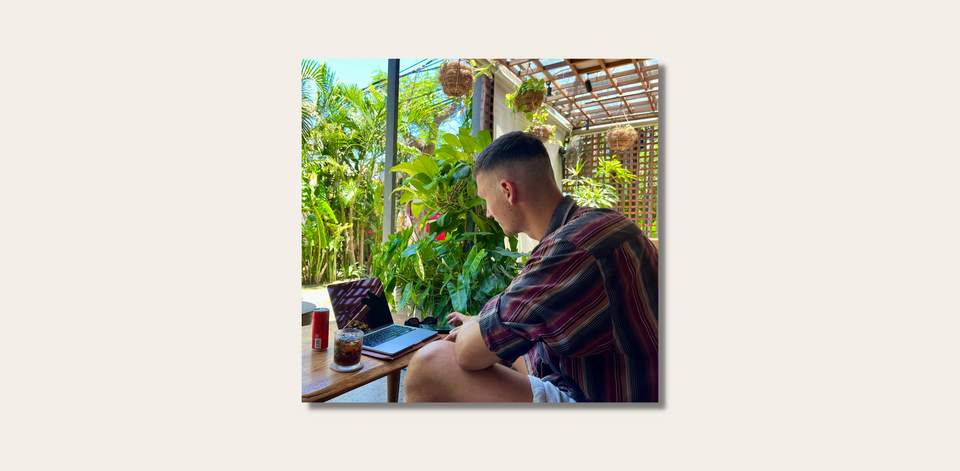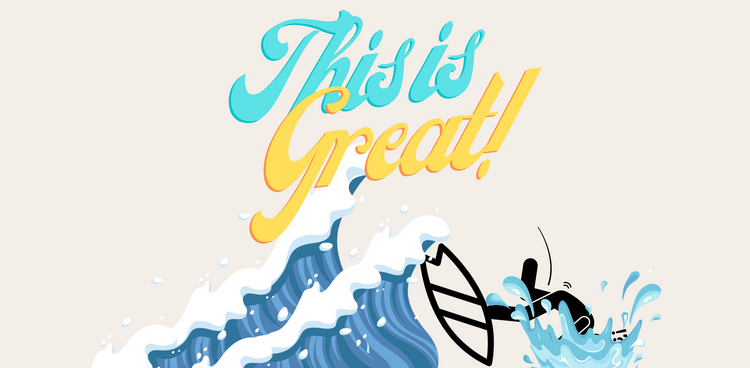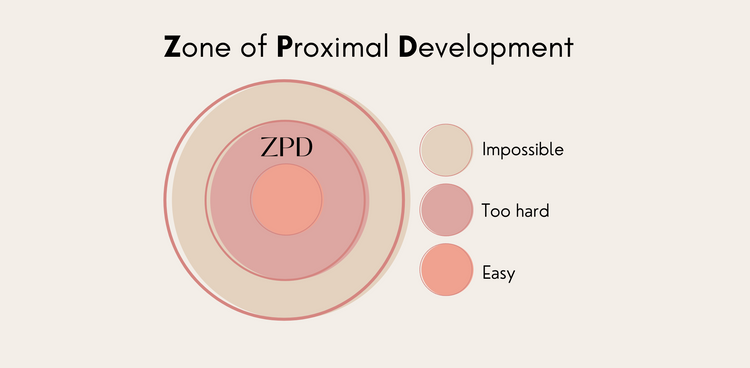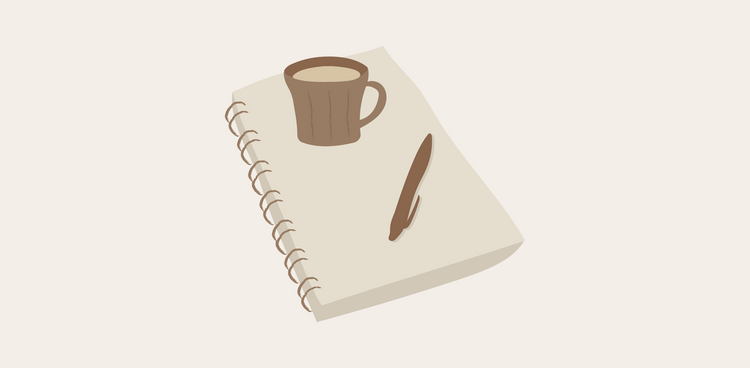Why go to all this trouble?

I’m back and I’m better. After spending the last 3 months in 30 cities over 5 time zones, I’ve arrived at a constant.
Not geographically, mind you. 'Move from Australia to Europe' is about as specific as it gets for now. But I do know this:
But how did we get here? Who am I, and why go to all this trouble? Let me explain.
Who?
I’m Johannes, and over the last four years I’ve taken a pretty peculiar journey. I’ve earned 2 degrees at 22. I went from moving halfway across the globe without knowing a single soul to connecting with a new person every day for a whole year. Worked in Innovation Management in Germany and ran Chess Classes in Australia. Conducted a study into Meditation & Burnout, got overwhelmed by the mountains of evidence and started integrating meditative practice into every day. Now the study is being published and I’m heading out to a 10-day silent retreat soon. Oh, and I’m obsessed with Psychology.
Why?
Back in 2018, just before I graduated High School, I sat in a Lecture on Social Psychology. That day, I found out education can be fascinating. Spending your time learning all the ways we trip ourselves up every day and what we can do about it? How Group Dynamics and Coaching Tools work? How to make a leader out of a boss and design fulfilling jobs? Absolute Score in my books!
So next day, I applied for the programme that lecturer had developed - A Bachelor's in Business Psychology. And I didn’t look back once. Over the following years, I immersed myself in Psychology. I consumed every lecture and book I could find. But with that flood of fascinating content coming my way, I found myself confused.
How was I supposed to retain anything? In school, I had only learned shove stuff into short-term memory. But cramming doesn't cut it when you actually want to learn something.
Well, good thing I was studying Psychology: In my cognitive psychology lecture, we learned how learning works. Turns out it's not reading or repeating information, but recalling and applying it.
a) trying to remember something and
b) relating it to things we already know.
So there was my solution. I decided study smarter, not harder. I started making flash cards for everything - Biases, Theories, Coaching Tools, Quotes I wanted to learn - everything.
No more sitting there for 10 hours the day before my exam, desperately trying to cram everything into my short-term memory. Instead, I just spent an hour or two every day on Spaced Repetition.
And it worked: The cards helped me work my way to the Top 5%, but without despising exam season.
Side Note: What’s Spaced Repetition?
With this evidence-based technique, you study the way the brain learns:
- Convert content into questions.
- Answer a question correctly once, and it comes back tomorrow.
- Answer it correctly the next day, and it comes back in 3 days.
- Repeat in increasing intervals. By continually recalling what you have learned, you create new connections in your memory and store it as long-term knowledge.
And that leads to a blog because…?
Over the course of my studies, I saw a pattern emerge.
If I finished a deck for a course, I would share it with friends. They would share it with their friends. And before I knew it, the cards developed a life of their own. People I had never met emailed me to request new decks for their upcoming semester. And I happily obliged - After all, I spent hours making them, so why not give them a second life?
At least until early 2022, when I finished my studies in Germany. Now on a plane to Australia to pursue a business degree, I was about to discover that Uni works quite differently there.
At Australian Universities, end-of-semester exams are replaced by assignments throughout the semester: A presentation here, a report there, a case study to finish it off. In other words, the deciding factor becomes application instead of memorisation. Uni required a different system.
So flashcards became Notion pages. As a note-taking tool focused on linking elements, Notion allows you to build your own Wikipedia - a searchable and interconnected set of concepts and models for each course.
These notes made research for assignments laughably easy - in my first semester after switching, I averaged a perfect grade. And the best part: you can share any page as a website with a single click. So I shared. And once again I found my notes reached people I didn't even know.
But now that I've graduated, I don't have to sum up lectures anymore. Nor do I get those carefully curated case studies to apply what I learn. And there’s no classmates to share it with either. And that's where the blog comes in.
Whatever problem I face, there’s likely someone smarter that has faced it before. There’s some seriously good stuff out there, both hidden away in cryptically-written academic research and well-worded by authors from past and present. So obviously, I'm far from done learning. Why would I be done sharing then?
Think of the posts as mini case-studies. But the cases are real now.
Each week, I’ll take a problem I’ve encountered, and draw on anything from psychological research to ancient philosophers and modern authors to find a solution. I’ll garnish their expertise with my personal experience as I shift from academia into the next chapter - and you get a weekly essay.
So this blog isn't about me giving advice. It's about me finding advice and inviting you to explore it with me.
Cheers! ☀️




Comments ()